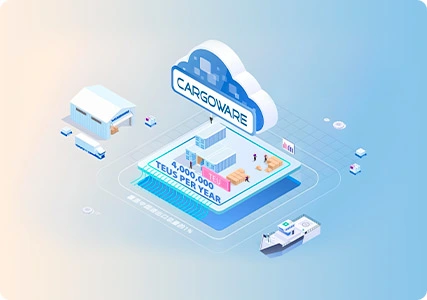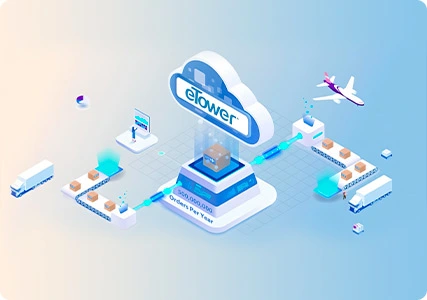
Logistics management is a crucial function in supply chain management that involves the planning, coordination, execution, and control of the movement and storage of goods and materials from the point of origin to the point of consumption. It encompasses various activities such as transportation, inventory management, warehousing, packaging and distribution, all of which are designed to optimize the flow of goods and reduce operational costs. Logistics management is responsible for ensuring that products are delivered to customers on time, at the right location, and in the desired condition. By employing advanced technologies and efficient processes, logistics management can help companies gain a competitive edge in the market by improving their overall supply chain performance.
Tips for Effective Logistics Management
Efficient logistics management ensures a smooth flow of communication and products, builds better customer relationships, and minimizes the need to maintain excess inventory. It also helps to reduce errors, shrink delivery times and increase revenues.
1. Define your goals and plan ahead To implement a successful logistics management strategy, businesses need to thoroughly assess every part of the supply chain, define how it should work, and align it with overall supply chain management goals. Planning ahead is crucial to minimize unexpected hiccups and ensure a smooth operation.
2. Automate core logistics operations Technology can play a significant role in boosting supply chain efficiency. Modern software is capable of measuring and analyzing various aspects of logistics management, thus enhancing the chances of success. Utilizing valuable software can save time, optimize performance, and improve overall logistics efficiency.
Besides, potential problems in the supply chain such as inadequately tracked fleets, scattered inventory or mismanaged warehouse processes can be improved by automating systems. Using systems to centralize information and automate provides access to real-time information. This can help a business to reach its maximum potential with a minimum investment in planning and implementing solutions.
3. Advanced routing practices help to plan delivery routes that highly efficient and productive. By considering a plethora of external factors like weather, one-ways, tonnage, empty miles, risk factors and more modern route planning platforms can significantly reduce transportation costs and delays.
4. Transportation is one of the biggest reason for growing carbon emissions across the globe. consume resources on a large scale and are largely responsible for the world’s carbon emissions. By introducing modern technologies, like route optimization, automation, Machine Learning, digital documentations among others, businesses can drastically shrink their carbon footprint.
5. Third-party logistics companies are used when a business wants to outsource all or some of its distribution and fulfillment functions. Embracing a digital logistics software that empowers logistics stakeholders to drive data-backed decision-making goes a long way when it comes to seamless management of third-party logistics providers.
The following are six major benefits of effective logistics management.
1. Enhanced Visibility: With logistics management, businesses gain greater visibility into their supply chain. This visibility enables them to make informed decisions based on data, control costs, identify operational inefficiencies, spot supply chain issues, conduct demand planning, and identify potential opportunities.
2. Reduced Overhead: Logistics management can help businesses cut overhead costs by increasing efficiency and understanding their operations at a deeper level. By optimizing shipping processes and controlling inventory levels, for example, organizations can save millions of dollars in expenses.
3. Improved Customer Experience: Providing an excellent customer experience is vital to achieving repeat sales and building brand loyalty. Effective logistics management can help businesses achieve this by ensuring accurate and timely delivery of orders, along with a seamless and streamlined experience for the customer.
4. Loss Prevention: Logistics management helps to prevent losses in multiple ways. By maintaining an accurate inventory count and tracking the movement of goods, businesses can prevent misplaced or diverted stock. Additionally, logistics management ensures optimal storage and transport conditions, which helps prevent spoilage and damage to products in transit.
5. Demand Forecasting: Logistics management supports businesses by accurately forecasting demand and adjusting inventory levels accordingly. This helps organizations scale to meet customer needs and fulfill orders on time.
6. Competitive Edge: By consistently delivering orders accurately and on time, businesses can gain a competitive edge and build a strong reputation for reliability and customer service. Effective logistics management can help companies achieve this and stand out in a crowded marketplace.
If you are interested in learning more about logistics management, please contact eTower or click our website: https://www.etowertech.com/










